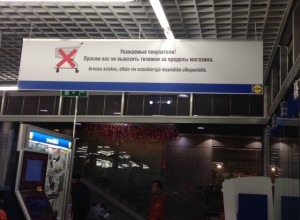Together with Raphaël Domange, a PhD student from the University of Stockholm, I am hosting a round table on a most current and relevant topic: the views we hold of second language varieties of English (for example, English as it is used in India, Ghana, Singapore, etc.), and how we talk about and research such varieties.
The round table, which takes place on June 16, 2017, will be led by a leading scholar in the area of World Englishes, Professor Edgar Schneider from the University of Regensberg, Germany.
The day will begin with focused discussions on a few key areas: 1) “Angloversals” vs. similects, 2) education and ideologies, and 3) methods and theory.
In addition to Professor Schneider, we have nine other scholars who will be joining us as discussants. Here is a bit of information about them.
Heli Paulasto, University of Eastern Finland. Heli joins us as an expert on so-called Angloversals. Here are a few of her publications on this topic:
Meriläinen, L. & Paulasto, H. (2017) ‘Embedded Inversion as an Angloversal: Evidence from Inner, Outer, and Expanding Circle Englishes’. In Filppula, M., Klemola, J. & Sharma, D. (eds.) The Oxford Handbook of World Englishes. Oxford: Oxford University Press.
Paulasto, H. (2014) ‘Extended uses of the progressive form in L1 and L2 Englishes.’ English World-Wide 35 (3), 247-276.
Lea Meriläinen, University of Eastern Finland. Lea is also an expert on Angloversals.
Meriläinen, L. & Paulasto, H. 2017. “Embedded Inversion as an Angloversal: Evidence from Inner, Outer, and Expanding Circle Englishes”. In Filppula, M., Klemola, J. & Sharma, D. (eds.) The Oxford Handbook of World Englishes. Oxford: Oxford University Press.
Meriläinen, L. (fc.) “The progressive form in learner Englishes: Examining variation across corpora”. To appear in World Englishes.
Paula Rautionaho, University of Tampere. Paula is investigating the use of progressive vs. non-progressive in ESL varieties.
“The effect of grammatical contexts on the progressive vs. non-progressive alternation across World Englishes” (with Sandra C. Deshors, ICAME 2017.
Jan-Ola Östman, University of Helsinki. Jan-Ola is interested in language contact, language minorities, language ideologies and language rights.
http://norden.diva-portal.org/smash/get/diva2:730884/FULLTEXT01.pdf
http://norden.diva-portal.org/smash/get/diva2:730884/FULLTEXT01.pdf
Simo Määttä, University of Helsinki. Simo comes from an interpreting and translation perspective. He is also interested in language rights.
Määttä, Simo. (2017, submitted) English as a Lingua Franca in Telephone Interpreting: Reformulations, Mistakes, Representations, and Linguistic Justice. The Interpreter’s Newsletter 22. Special Issue on Corpus-based Dialogue Interpreting Studies. Bendazzoli,C. (ed.).
Määttä, Simo. (2017) ELF, Community Interpreting, and Linguistic Injustice. Paper at the the ELF10 conference at U Helsinki, panel 4 on June 13.
Joseph McVeigh, University of Helsinki/University of Jyväskylä. Joe is interested in discussing issues that deal with a native-speaker bias and the teaching of English. Joe is currently finishing his PhD for the University of Helsinki.
Andy Kirkpatrick, Griffith University. Andy is interested in the role of local Englishes and langauge education policy in Asia. He is hosting a panel on the future of English as a Lingua Franca at ELF10 Conference in Helsinki.
Iris Schaller-Schwaner, University of Fribourg. Iris is interested in exploring the notion of similects, in addition to practical and oral skills.
Schaller-Schwaner, Iris (2015). ELF oral presentations in a multilingual context: intelligibility, familiarity and agency. In: Bowles, Hugo & Cogo, Alessia (eds.) International Perspectives on English as a Lingua Franca: Pedagogical Insights (International Perspectives in ELT) Basingstoke, UK: Palgrave Macmillan: 72-95.
Svetlana Vetchinnikova, University of Helsinki. Svetlana is an expert on English as a Lingua Franca. She is a co-organizer of the ELF10 conference in Helsinki.
During the morning session, 9.30 to noon, these discussants and Professor Schneider will discuss our main themes in focus groups. In the afternoon, 1 to 4 pm, Professor Schneider will serve as the main discussant as the groups summarize their discussion. The afternoon session is open to the public.
